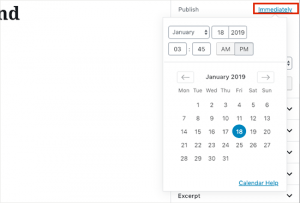
When it comes to your resume, lying should never be an option. At the same time, it also isn’t your life history. Your resume is a snapshot of your career and accomplishments to show employers what you bring to the table and why you are a good fit for the open position. If you spent a summer mowing lawns or three months as a cashier at the grocery store, chances are that doesn’t have much to do with where you’re headed in your career and won’t have much of an impact.
Detailing every job you’ve ever held is not necessary, especially if you have a long work history. As a rule of thumb, focus on the past 10-15 years. While it’s nice to see that you’ve worked your way up in your career, employers won’t necessarily care about junior-level work that you have since surpassed by leaps and bounds. So how do you know what’s okay to leave off of your resume?
- Short-term stints
If you only spent a few months at a job and don’t have much to note in the way of accomplishments or new skills, you can probably leave the position off. Just make sure that you’re not leaving a noticeable gap in employment. This is another reason why simply listing the years of employment rather than months is beneficial.
- Irrelevant roles
Have you changed your career focus in the past several years? If you’ve been successfully working as a marketing executive and have a few jobs or years of experience under your belt, listing the 10 years you spent as a teacher prior to that isn’t really a priority. Especially if you’re not planning on heading back to teaching. Focus on more recent roles that highlight applicable skills, projects, and achievements. You may also list older work experience in a separate section without elaborating on the details beyond company name, position held, and years worked.
Remember – the purpose of your resume is to show employers why you’re the best candidate for this role. Unless you can draw out relevant skills and accomplishments from an unrelated job, it’s probably okay to skip it on your resume. Use your best judgment.
But here’s the catch – do not leave these positions off if you’re filling out a detailed job history in addition to your resume. As you get further along in the interviewing or hiring process, you’ll likely be asked to provide additional information. Don’t gloss over any jobs if you’re asked for a list of all positions you’ve held in the past 10 years. Your resume is an overview, but other employment documents are more thorough and you’re often asked to sign a statement confirming that it is accurate to the best of your knowledge.
Business & Finance Articles on Business 2 Community(66)




